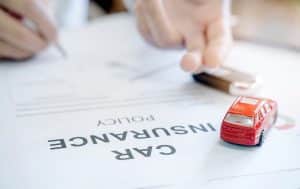How to Prepare for a Car Accident Before It Happens

Of course, trying to avoid car accidents altogether by driving carefully and safely is still the best policy, but sometimes even if you do everything right, you may still end up being injured in a car crash due to no fault of your own. But as the old saying goes, “failing to plan is planning to fail.” By preparing ahead of time for what to do in case you are involved in a Houston car accident, you can make things significantly easier for yourself.
1. Buy the right car insurance
Texas drivers have a lot of options when purchasing automobile insurance. The types of coverage you get and the insurance company you decide to use matter. The Texas Department of Insurance provides helpful information on how to decide on coverage, including collision, comprehensive, uninsured or underinsured, medical payments, and personal injury protection.
If you would like more information about what insurance company to buy or not to buy insurance from, you may want to take a look at the Texas Department of Insurance Internet Complaint data resources, which tracks the number and type of complaints filed against insurance companies in the State of Texas. The data can provide some useful information that can help choose an insurance company. It may also be helpful to get advice from an insurance agent who sells insurance for multiple companies or to ask acquaintances who work in areas related to insurance such as adjusters, agents, or lawyers.
2. Consider a towing/roadside assistance service
Whether AAA or a service through your car insurance or car dealer, it is generally a very good idea to have a towing service available when you need it. This may be helpful in several types of situations in addition to car accidents (like flat tires or dead batteries). Keep in mind that the cost of a single tow by a random wrecker who happens to be the one to tow away your vehicle after an accident is usually several times the cost of a yearly membership to the various roadside assistance services available.
3. Keep an emergency kit in your car
An emergency kit can be useful in a variety of situations, including car accidents. Make sure it includes items like a flashlight, a blanket, a fire extinguisher, and jumper cables. Additionally, a basic first aid kit can help treat minor injuries in the event of an accident. Make sure it includes items like bandages, gauze, antiseptic wipes, and pain relievers.
4. Keep important information in your car and phone
Keep your driver’s license, insurance card, and registration in a safe and easily accessible place in your car. This can make it easier to exchange information with other drivers if you’re involved in an accident. Program emergency contacts and your insurance company’s claims hotline into your phone so you can quickly access them if needed.
5. Always wear your seat belt
This should go without saying, but we’ll say it anyway – always wear your seatbelt while driving or riding in a car, as it can help prevent serious or even fatal injuries in the event of an accident.
6. Be prepared for what to do at the scene
If you were just in a car accident, you may not have the time or the ability to start figuring out for the very first time what you should do at the scene of the crash. Before you get behind the wheel and turn on the engine, you should have a clear understanding of the steps to follow at the crash scene if you are involved in an accident. Thinking about this ahead of time will help you stay calm at the scene and go through each of the necessary steps. This can include knowing how to safely exit your vehicle, exchanging information with other drivers, documenting the scene, and contacting the police.
If there are no serious injuries at the scene or other emergencies requiring immediate attention, do not call 911 to summon the police. Instead, call the police non-emergency number. The non-emergency numbers and contact us pages for several law enforcement agencies in the greater Houston area are provided below.
- Houston Police Department: Non-Emergency Number: (713) 884-3131
- Harris County Sherriff: Non-Emergency Number: (713) 221-6000
- Montgomery County Sherriff: Non-Emergency Number: (936) 760-5800
- Sugar Land Police Department: Non-Emergency Number: 281-275-2020
- Fort Bend County Sherriff: Non-Emergency Number: 281-341-4665
- Bellaire Police Department: Non-Emergency Number: 713-668-0487
Finally, consult with a Houston personal injury attorney. You can have peace of mind knowing that you have an experienced advocate on your side who will fight for your best interests. They can help you navigate the complex legal system, negotiate with insurance companies, and ensure that you receive the compensation you deserve.
If you’ve been injured in a car accident, the Houston attorneys at the Kishinevsky Law Firm want to help. Call our office or complete our contact form to schedule a free initial consultation today.

In April 2015, Leonid Kishinevsky started the Kishinevsky Law Firm, focusing his practice primarily on personal injury litigation. As a personal injury lawyer providing representation to clients throughout the greater Houston area, he assists people who have suffered economic and noneconomic losses and harms due to the fault of other people or companies.
